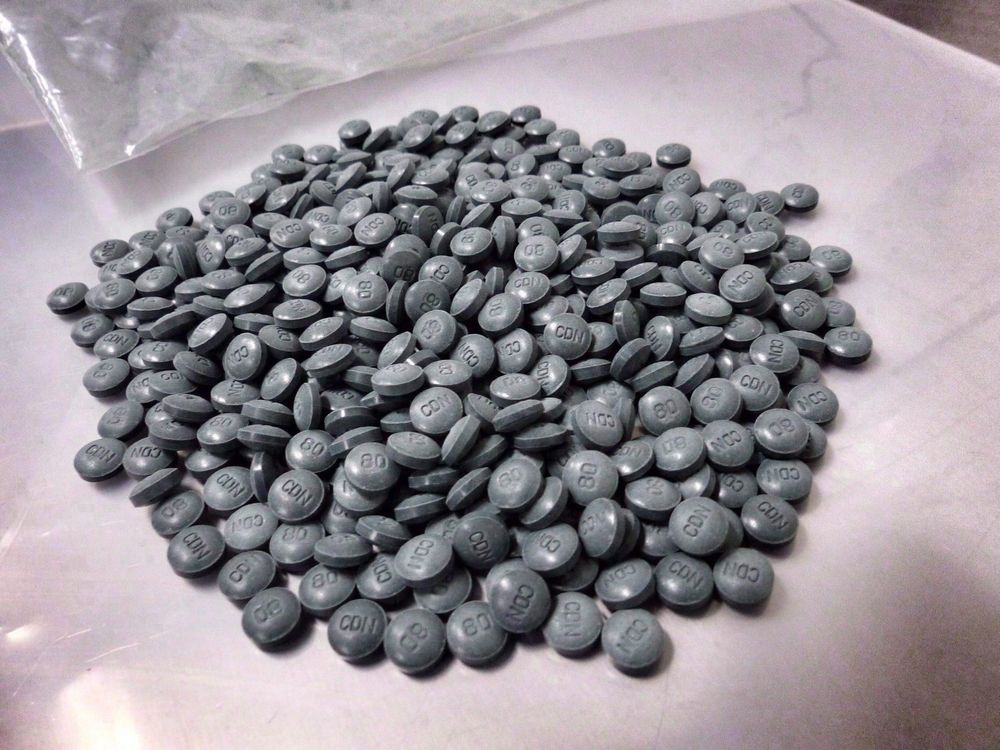
24 Dec ‘There’s a lot of hurt’: Indigenous Friendship Centres prioritize culture amid opioid crisis

Fentanyl pills are shown in an undated police handout photo.
Indigenous Friendship Centres are taking a different approach to addressing Alberta’s opioid crisis, in part thanks to a government grant that will end in 2019.
“The problem is the cash is going to run out … and navigators in four Friendship Centre communities will not exist April 1,” said Joanne Mason, executive director of the Alberta Native Friendship Centres Association.
In August, a $400,000 provincial grant created four new staff “navigators” who connect those in the friendship centres to treatment and culturally-sensitive services.
The workers were hired in Edmonton, Calgary, Lethbridge and Grande Prairie, in the hardest hit areas, said Mason. The money also provided friendship centres in 21 communities with materials for workshops and naloxone training.
“The opioid crisis is affecting Albertans and Canadians no matter where they come from,” Mason said in a recent interview. “Unfortunately, urban Indigenous people are just experiencing that at a much higher rate.”
The latest provincial data found that nearly 500 people died due to fentanyl overdoses in the first three quarters of 2018. Officials say it’s possible Alberta has entered a plateau phase with fewer deaths on the horizon.
There were 158 fentanyl-related deaths in the third quarter ending Sept. 30, according to the report. That’s down from the 169 and 167 deaths reported in the first and second quarters respectively.
Mason said despite the possible plateau in deaths due to opioid overdoses, communities are still fearful.
“There’s a lot of anxiety, there’s a lot of hurt,” she said. “I don’t believe this is going to go away in six months.”
Navigator Stephanie Calf-Robe, based in Lethbridge, runs a support group for those battling opioid addictions. But other programs she’s launched include cultural activities like Indigenous skirt making or singing.
“My interaction with the community is mainly geared toward cultural programming and reconnecting people to our Indigenous ways,” she said, adding her programs aim in part to address intergenerational trauma.
She also brings lived experience to her work.
“I was an addict, an alcoholic,” she said. “Because I had these cultural teachings, I knew that there was another way.”
She stresses that in Lethbridge, there are additionally a variety of medical services and treatment centres for those searching for help.
Shawn Singer, programs manager at the Sik-Ooh-Kotoki Friendship Society in Lethbridge, said the agency also focuses on storytelling, one way to connect elders and youth.
“It’s really important for Indigenous people to reclaim their identity,” said Singer.
“There’s still a lot of stigmatization and stereotypes. When you add in someone who has an addiction, it’s even more challenging,” he said. “There is a lot of shame attached to it, so they tend to hide.”
He added that the December holiday season is a particularly difficult time for those seeking help to maintain sobriety.
“It’s a community coordinated effort that needs to be put in place,” he said.
[ad_2]
Source link



No Comments